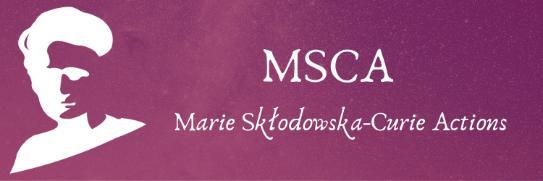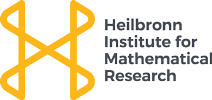Past PGR awards
EPSRC Mathematical Sciences Doctoral Training Partnership

The EPSRC Mathematical Sciences DTP offers flexible support for PhD students across any areas within the School of Mathematical Sciences. The funding is part of the £300 million in additional funding for mathematical sciences announced by the Government in January 2020. This funding comes as an addition to the main DTP allocation that the School receives every year. The total award for our School is £386,826. This amount is based on our current EPSRC portfolio and it is a reflection of the hard work staff have put in to secure EPSRC funding in the past years. This DTP award is being used to fund four doctoral students that started with us in 2021-22. The duration of studentships offered through this funding will be 4 years and include the student’s stipend and annual tuition fees, with the flexibility to use some of this funding to appoint international students.
Marie Skłodowska-Curie European Training Network
Early-Stage Researcher (ESR) funded by the European Commission Horizon 2020 Marie Skłodowska-Curie European Training Network EvoGamesPlus.

EvoGamesPlus comprises 15 beneficiaries from academic sectors from 9 European countries (Austria, Czech Republic, Germany, Hungary, Ireland, Italy, Poland, Netherlands, UK) and a further 15 partner organisations from the academic sector from 7 countries (Brazil, France, Italy, Spain, Netherlands, UK, USA) and comprises high-level research and doctoral level training programme involving a total of 15 ESRs. Christopher Morison is the ESR appointed at Queen Mary’s School of Mathematical Sciences (SMS). He joined the School in August 2021 and works under the supervision of Dr Weini Huang (first supervisor), Dr Dudley Stark (second supervisor). The partner training labs are the Barts Cancer Institute in Queen Mary’s School of Medicine and Dentistry and the Maths Department at the University of Maastricht in the Netherlands. Christopher is conducting a research project to use stochastic processes and game theory to study how different mechanisms of resistance in cancer cells impact patient treatment prospects and how we adjust treatment to maximise treatment efficacy under these different possible assumptions.
Heilbronn Institute for Mathematical Research funded studentship
The Heilbronn Institute is match funding a four years studentship at Queen Mary. Adam Onus is the student appointed to this project and they joined us in October 2021 to work on a project on Topological Analysis of Structured Data, supervised by Dr Primoz Skraba. The underlying structure is often critical to understanding and analysing data. The structure can take on many different forms but in real-world scenarios, these structures are often noisy, incomplete and/or approximate. The goal of the project is to understand how topological tools may be used to understand the qualitative structure of systems that exhibit “approximate” structure. For example, many types of data exhibit symmetries or periodicities, and while both are well-understood mathematically, the notion of approximate symmetries or approximate periodicities is not at all well-understood, yet appears in many natural settings e.g. human or animal shapes exhibit approximate left-right symmetry. The project will look at both understanding the mathematical structures which best describe these properties as well as practical issues which arise when dealing with real-world data.
